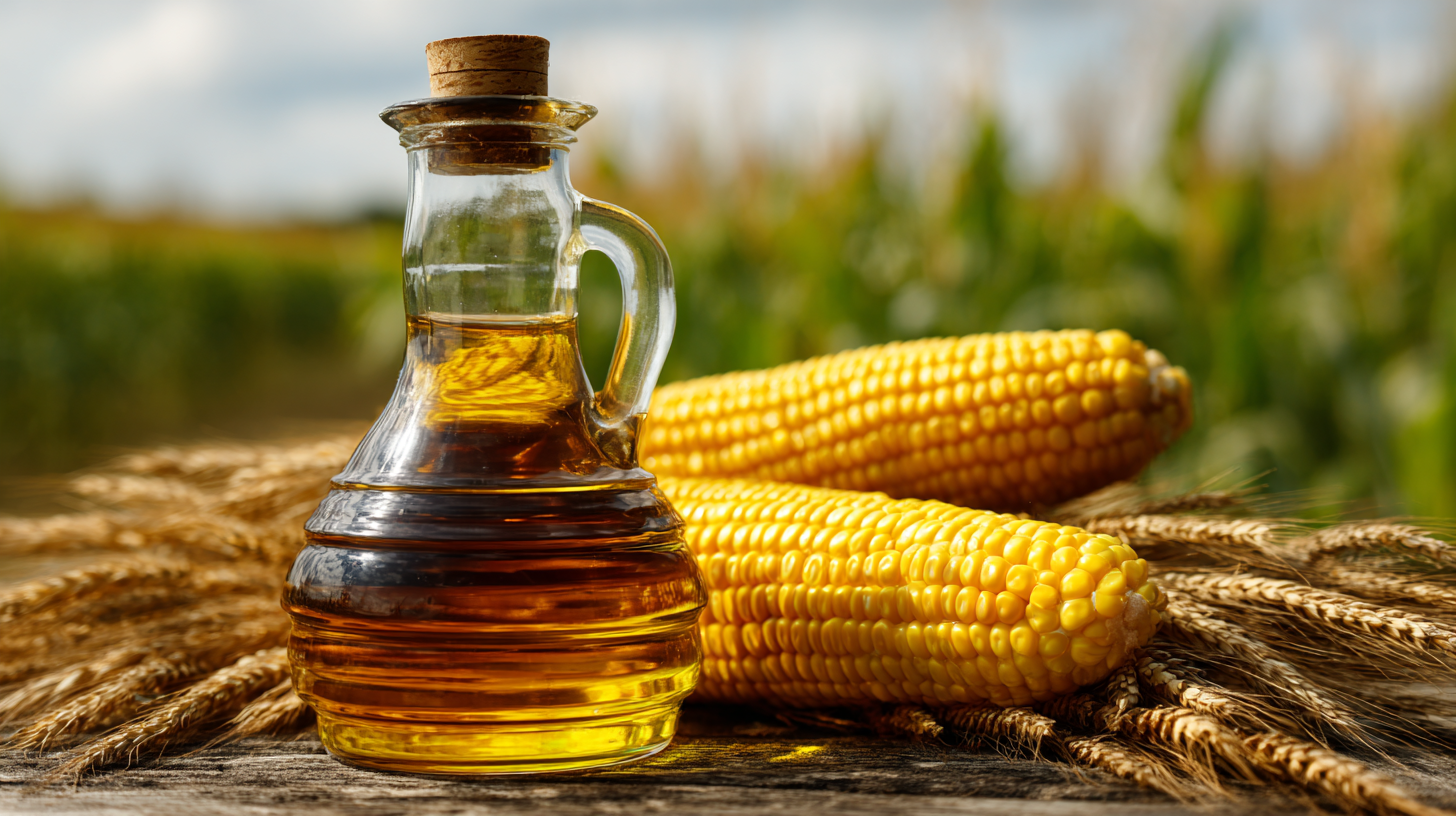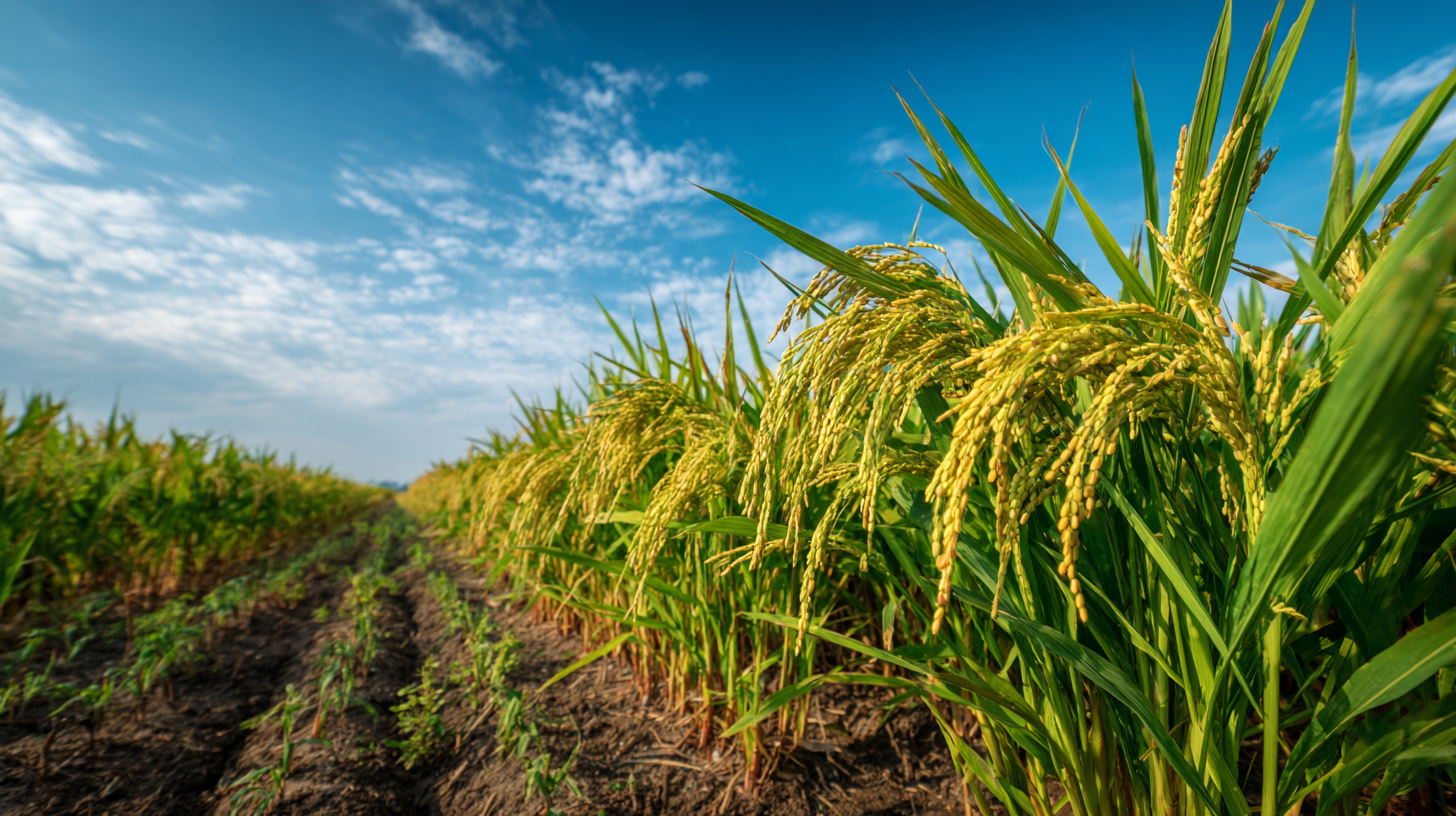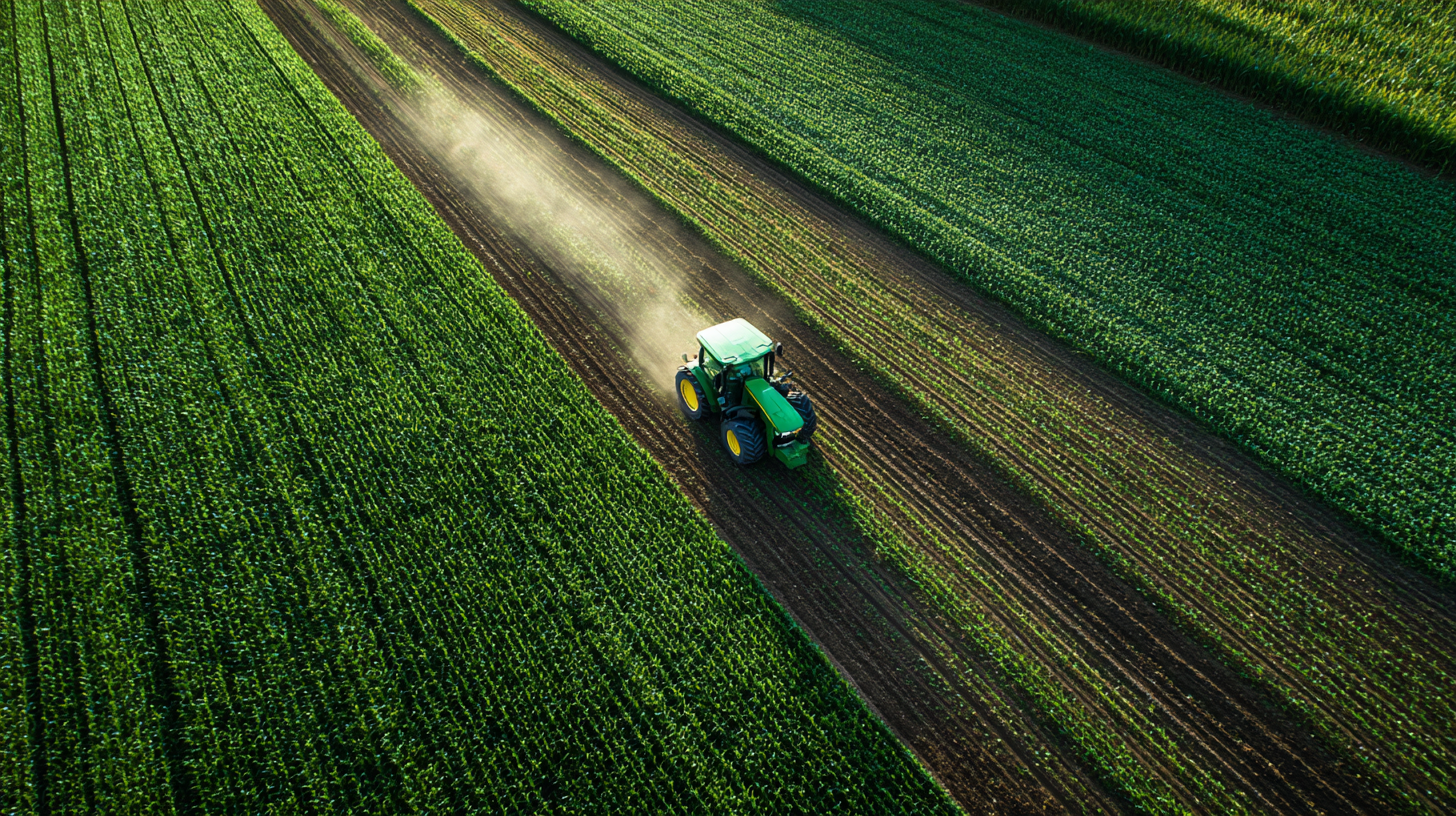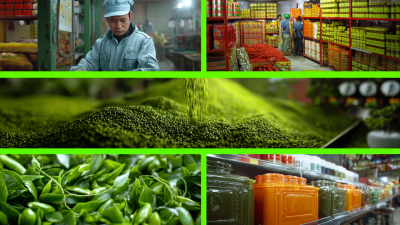 0551-68500918
0551-68500918 





You know, the agricultural world is really changing fast, and it’s becoming clearer than ever how crucial sustainable practices are. One of the big players in this push towards greener farming is Agricultural Oil. It’s gaining traction, with experts predicting that the global market for agricultural oil could hit around $26.2 billion by 2025, growing at about 4.2% each year (thanks, MarketsandMarkets!).

Leading the charge is Innovation Meiland (Hefei) Co., LTD., which is all about creating new pesticide products and smarter formulations to help farmers boost efficiency while being kinder to our planet. By using high-quality Agricultural Oil, farmers can really amp up soil health, see better crop yields, and cut back on those synthetic chemicals they usually rely on.
This blog is going to dive into the cool benefits of Agricultural Oil, share some interesting case studies from the industry, and tackle the common hiccups folks face when using it. Let’s explore how we can pave the path for a greener agricultural future together!
You know, more and more farmers are starting to see the benefits of using high-quality agricultural oils. It's not just a trend; it’s becoming a solid practice for sustainable farming, and for good reason! These oils really boost crop production and help keep the soil healthy. In fact, a report from the Sustainable Agriculture Research and Education (SARE) program shows that when farmers incorporate top-grade vegetable oils into their pest management strategies, they can actually cut down the need for synthetic pesticides by about 30%. This is huge because it means less chemical runoff and a much friendlier environment for those helpful bugs that love hanging out in the fields with our crops.

You know, in today's rapidly changing world of sustainable farming, after-sales service has really become a key player in helping farmers work smarter and not harder. A report from the Food and Agriculture Organization (FAO) suggests that good after-sales support can snag an increase in productivity by as much as 20%. How? Well, it’s all about making sure farmers get the maintenance support and spare parts they need for their machinery, right when they need it. This seamless approach not only cuts down on downtime but also helps to forge stronger bonds between producers and consumers. It’s like creating a team spirit that’s crucial for keeping things running sustainably in the long run.
And there’s more to it! A recent survey from the International Society for Agricultural Machinery found that farmers who really engage with their after-sales service providers tend to hit fewer bumps in the road. In fact, about 75% of them said that regular check-ins and training sessions from these providers have helped them get the most out of their agricultural oils. These oils are super important because they reduce wear and tear on machinery and help equipment last longer. So, by focusing on after-sales service, the agricultural community is ensuring that farmers don’t just have the best tools but also the support they need throughout their journeys. It’s all about building a healthier, more sustainable farming ecosystem together!
This chart illustrates the impact of different types of agricultural oils on farming efficiency, highlighting the benefits of after-sales service in maximizing their use.
When it comes to sustainable farming, picking the right agricultural oil isn’t just about being eco-friendly; it’s also a big deal for farmers' wallets. Taking a closer look at what it costs to maintain different types of agricultural oils can really shed light on the long-term economic effects for those in the field. Each oil has its own price tag and upkeep needs, and let me tell you, this can really add up and impact everyday operations. So as farmers navigate all these options, getting a good grip on these financial aspects is key to choosing the most budget-friendly alternatives that also stick to sustainable practices.
Lately, there’s been a lot of chatter about economic policies like tariffs and trade changes, which just goes to show how crucial it is for farmers to dive deep into cost analyses for their operations. Take tariffs, for instance; they can bump up import prices, affecting costs for various agricultural inputs—oils included. By carefully looking at the maintenance costs tied to these different oils and considering that prices might fluctuate due to policy shifts, farmers can make sharper decisions. This not only boosts their profitability but keeps them aligned with sustainable farming values. Plus, this savvy approach can really help them manage risks that come with economic ups and downs while supporting wider environmental goals.
When we talk about sustainable farming, picking the right agricultural oil is super important. It doesn’t just affect how we treat the environment; it can really boost crop productivity too! Different types of oils bring their own unique perks that go way beyond just being eco-friendly. Take canola and sunflower oils, for instance—they're packed with omega fatty acids, which are awesome for soil health and actually help out the microbes that are crucial for plants to absorb nutrients. These oils can act like natural fertilizers, which means we might not have to rely so heavily on those synthetic options.
Then there's neem oil, which is pretty nifty because it naturally keeps pests away—talk about a game changer! By using oils like these, farmers can grow healthier crops and also keep biodiversity thriving in their fields. Plus, oils like olive and jojoba? They’re not just biodegradable; they do wonders for the soil, improving aeration and helping retain water. So, as farmers dig into all these different oils, it’s clear that choosing the right one can really help create a more sustainable and productive farming ecosystem. It’s definitely a must-have in today’s agricultural world!
| Type of Oil | Sustainability Rating | Nutrient Content (per 100g) | Pest Resistance | Soil Health Benefits | Economic Viability |
|---|---|---|---|---|---|
| Sunflower Oil | High | Vitamin E, Omega-6 | Moderate | Improves soil moisture | Cost-effective |
| Rapeseed Oil | Very High | Omega-3, Vitamin K | High | Enhances microbial activity | Highly profitable |
| Olive Oil | Moderate | Monounsaturated fats, Antioxidants | Low | Supports biodiversity | Variable profitability |
| Soybean Oil | Average | Polyunsaturated fats | Moderate | May improve nitrogen fixation | Economically viable |
| Coconut Oil | Low | Saturated fats, Lauric acid | Very high | Can improve soil structure | Higher initial costs |
You know, when it comes to farming, the role of quality agricultural oils in boosting crop yields and keeping our soil healthy is just huge. These oils, which come straight from nature’s goodness, are super important for sustainable farming. They really help improve the structure of the soil and make nutrients more available, which in turn gets the microbiome bustling with activity. This creates a vibrant ecosystem that really supports plant growth! Many farmers who start using these high-quality oils in their soil management have noticed they can hold onto moisture better, which is a game changer during dry spells. It also means they don’t have to rely so much on irrigation.
And let’s not forget how these top-notch agricultural oils can seriously ramp up crop yields! They act like natural pest repellents and also help plants grow healthier by giving them the nutrients they need for better photosynthesis and stronger roots. Farmers can move away from synthetic fertilizers and pesticides, which helps create a farming system that’s much more resilient. Not only does this lead to better productivity, but it also supports the environment, which is such a big deal these days with everyone trying to get on board with greener methods. So, investing in quality agricultural oils is really a no-brainer for any farmer wanting to get the most out of their crops and protect soil health for future generations.
Hey there! You know, investing in top-notch agricultural oils is really becoming a big deal for farmers these days. If they want to boost their yields and keep things sustainable, this is key. There’s this report from the Food and Agriculture Organization (FAO) that says sustainable farming practices not only give crops a serious performance boost but also help cut down on environmental damage. For example, using high-quality oils from oilseeds can ramp up the nutrient uptake in plants by as much as 30%! So, farmers can get more bang for their buck with fewer resources.

And get this: the global agricultural oil market is expected to hit a whopping $320 billion by 2025! All of this growth is really being driven by the rising demand for organic and sustainable farming practices. Premium oils have been shown to not just improve soil health but also help fend off pests, leading to around a 15% increase in crop yields compared to traditional methods, according to the International Journal of Agricultural Science. So, as farmers think about their growth strategies for the future, putting money into high-quality agricultural oils not only offers quick returns but also puts them in a great spot in this eco-friendly marketplace that’s getting more and more conscious of sustainability.
: Quality agricultural oils can significantly boost crop yields by functioning as natural pest deterrents and supplying key nutrients that enhance photosynthesis and root development.
Agricultural oils improve soil structure and nutrient availability, enhance microbiome activity, and foster a thriving ecosystem that supports plant growth, ultimately benefiting soil health.
Yes, integrating high-quality agricultural oils can minimize reliance on synthetic fertilizers and pesticides, promoting a more resilient agricultural system.
The application of superior agricultural oils can enhance moisture retention in the soil, allowing crops to withstand drought periods and reducing the need for excessive irrigation.
Investing in high-quality oils can lead to higher productivity with fewer inputs, potentially allowing farmers to achieve a better return on their investments.
Sustainable farming practices that utilize top-tier agricultural oils not only improve crop performance but also reduce environmental impacts, aligning with the global push for greener farming.
Using high-quality oils derived from oilseeds can increase nutrient uptake in plants by up to 30%, thus enhancing overall crop performance.
The global agricultural oil market is projected to reach $320 billion by 2025, primarily due to the growing demand for organic and sustainable farming solutions.
Premium agricultural oils have been shown to enhance pest resistance, which results in healthier plants and contributes to increased crop yields over conventional practices.
The use of premium agricultural oils can lead to an estimated 15% increase in crop yields compared to traditional farming practices, as noted in agricultural research.







